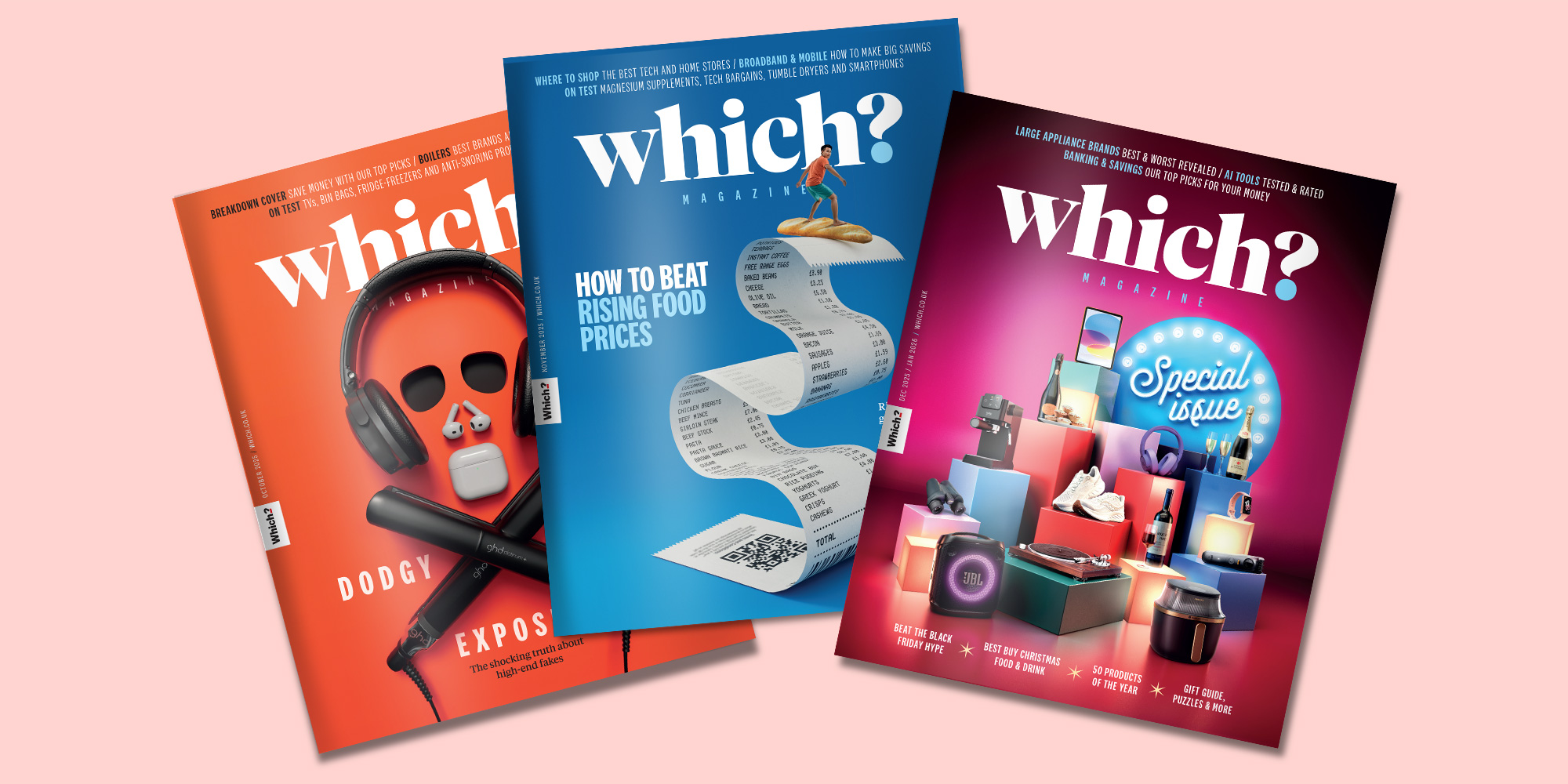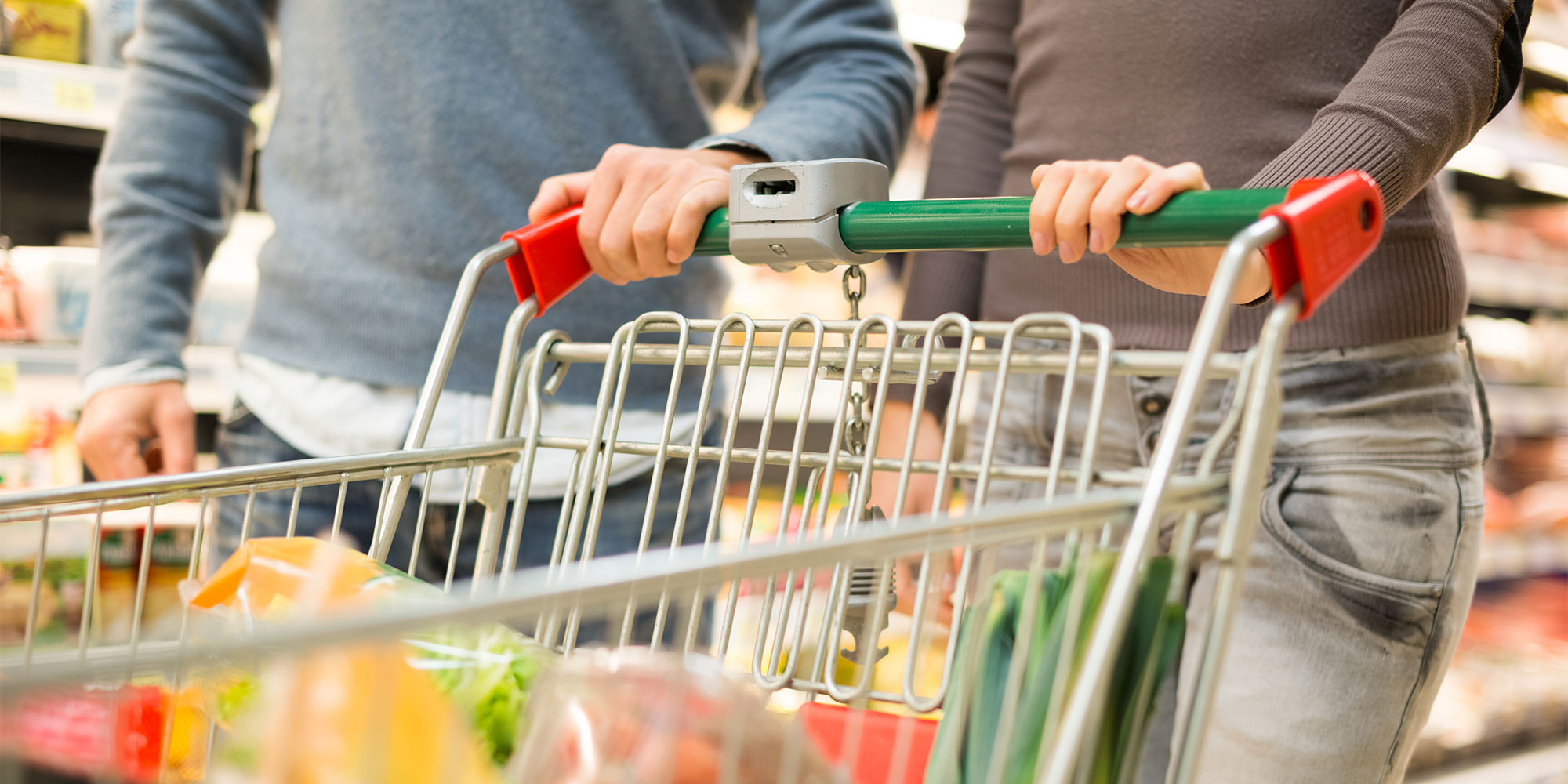
Support investigative journalism
Our award-winning investigations help us in our mission to make life simpler, fairer and safer for everyone.
Join Which?By clicking a retailer link you consent to third-party cookies that track your onward journey. This enables W? to receive an affiliate commission if you make a purchase, which supports our mission to be the UK's consumer champion.

Every month, we compare thousands of prices at eight of the UK's major supermarkets – Aldi, Asda, Lidl, Morrisons, Ocado, Sainsbury’s, Tesco and Waitrose – to reveal the cheapest supermarket to buy your food, drink and household essentials.
Aldi has taken the crown in recent months, closely followed by Lidl – but how do big chains such as Tesco and Sainsbury's compare, and does being a member of a loyalty scheme make a significant difference to the cost of a basket of groceries?
Read on to find out the latest results of our supermarket price comparison.
Why you can trust our research
Daily price checks
We track the prices of up to 200 branded and own-label products every day over the course of a month to work out the average cost per item.
Quality data
Our data is supplied by an independent price comparison company. For stores that don't have online prices, we send fieldworkers out to gather prices.
The cheapest supermarket for a shopping list of 89 items in January was Aldi, where the groceries cost £164.74 on average. Lidl was slightly more expensive than Aldi, on average, at £166.53 without a loyalty card, or £166.33 with one.
Tesco was the next cheapest for our list of groceries, costing £182.92. Waitrose was, once again, the most expensive supermarket at £221.53 – 34% more than Aldi.
| Supermarket | Average price for 89 items |
|---|---|
| Aldi | £164.74 |
| Lidl with Lidl Plus | £166.33 |
| Lidl | £166.53 |
| Tesco with Clubcard | £182.92 |
| Asda | £183.04 |
| Tesco | £186.92 |
| Morrisons | £187.65 |
| Sainsbury's with Nectar | £189.24 |
| Sainsbury's | £194.58 |
| Ocado | £207.12 |
| Waitrose | £221.53 |
The table shows the average cost of our shopping list. Lidl, Sainsbury's and Tesco offered loyalty discounts on some items in our basket, so we've calculated the cost for members and non-members.
We also compared the price of a longer list of groceries, including a large range of branded items that aren't stocked by the discounters Aldi and Lidl.
Tesco with a Clubcard knocked Asda off the top spot in this list for the first time in over a year.
Sainsbury's and Morrisons, with loyalty discounts, were next in our table.
Sainsbury's without Nectar and Waitrose were the two most expensive for the longer list of groceries, at £659.85 and £679.20, respectively.
| Supermarket | Average price for 228 items |
|---|---|
| Tesco with Clubcard | £588.96 |
| Asda | £590.41 |
| Sainsbury's with Nectar | £603.55 |
| Morrisons with More | £612.88 |
| Morrisons | £613.74 |
| Ocado | £634.68 |
| Tesco | £641.09 |
| Sainsbury's | £659.85 |
| Waitrose | £679.20 |
We track the prices of up to 200 branded and own-label products every day over the course of a month to work out the average cost per item. We then add up those averages to get a total for each retailer. We include special offers and, since June 2024, loyalty prices where applicable, but not multibuys.
We can’t include the value of points, personalised discounts or other rewards as these vary from customer to customer.
Products on our list include everything from Heinz baked beans and Mr Kipling cakes to own-label milk, bread and cheese.
Our data is supplied by an independent price comparison company. For stores that don't have online prices, we send fieldworkers out to gather prices.
The master list of 200 products is currently updated annually but otherwise remains constant. However, the specific products chosen from the master list vary from month to month depending on availability. This means the totals aren't comparable between months or years.
We checked the cost of a trolley of groceries at the UK's biggest supermarkets every day throughout 2025, and revealed the results each month.
Aldi was the cheapest supermarket for 10 of the 12 months of the year, making it the cheapest supermarket of 2025 according to our analysis.
Lidl was the cheapest for two months of 2025 (July and October). Overall, it charged 77p more than Aldi on average each month.
Waitrose was the most expensive supermarket for our shopping list in every month of 2025.
Asda was the cheapest supermarket for all 12 months when we compared the total cost of a longer shopping list. This analysis didn't include Aldi or Lidl as they have smaller product ranges.
Waitrose was the most expensive for our bigger shop every month as well.
Our price comparison includes discounts that are available to everyone and loyalty prices where applicable, but not multibuys.
You can read more about our analysis further down the page. The results for each month of 2025 are below.

Our award-winning investigations help us in our mission to make life simpler, fairer and safer for everyone.
Join Which?Aldi was the cheapest supermarket for all 12 months, making it the cheapest supermarket of 2024 according to our analysis.
Lidl was the second-cheapest supermarket every month, charging £1.99 more than Aldi on average.
Waitrose was the most expensive supermarket for our shopping list in every month of 2024.
For a longer list of groceries, Asda was the cheapest supermarket for nine out of 12 months. This analysis didn't include Aldi or Lidl as they have smaller product ranges.
However, Tesco was cheaper nearly half the time after we began including loyalty discounts in our analysis in June 2024.
Waitrose was the most expensive for our bigger shop every month except September, when Sainsbury's was priciest (for shoppers not using a Nectar card).
Aldi was the cheapest supermarket in 2023, according to our monthly analysis of grocery prices.
The discounter was the cheapest in our price comparison for 11 months of the year.
Lidl was the second-cheapest supermarket for the same 11 months and narrowly beat Aldi to the top spot in October.
Waitrose was the most expensive supermarket for our shopping list in every month of 2023.
In our comparison of a bigger trolley of goods, in which we didn't include Aldi or Lidl due to their smaller product ranges, Asda was the cheapest supermarket every month but one.
Aldi was the cheapest supermarket in 2022.
The discounter was the cheapest in our price comparison for seven out of 12 months in 2022.
Lidl wasn't far behind, coming out cheapest in the first five months of the year.
Across the seven months that Aldi was the 'cheapest supermarket of the month', the average difference was £1.59 compared with Lidl.
Asda was the cheapest of the non-discounters, coming out on top every month across 2022.
Aldi was the cheapest supermarket in 2021.
It won the 'cheapest supermarket of the month' title six times that year – more than any other supermarket. Lidl came top for five months and, for one month, the two discounters were tied.
At the other end of the scale, Waitrose was the most expensive each month.
Lidl was the cheapest supermarket in 2020. The discounter was just 34p cheaper than its nearest rival, Aldi, for our trolley of 45 branded and own-label groceries.
It was £26.02 cheaper than the most expensive supermarket, Waitrose.
Prior to 2020 we were unable to include Aldi and Lidl in our analysis, and only looked at Asda, Morrisons, Ocado, Sainsbury's, Tesco and Waitrose. The overall cheapest supermarkets for each year between 2014 and 2019 were: